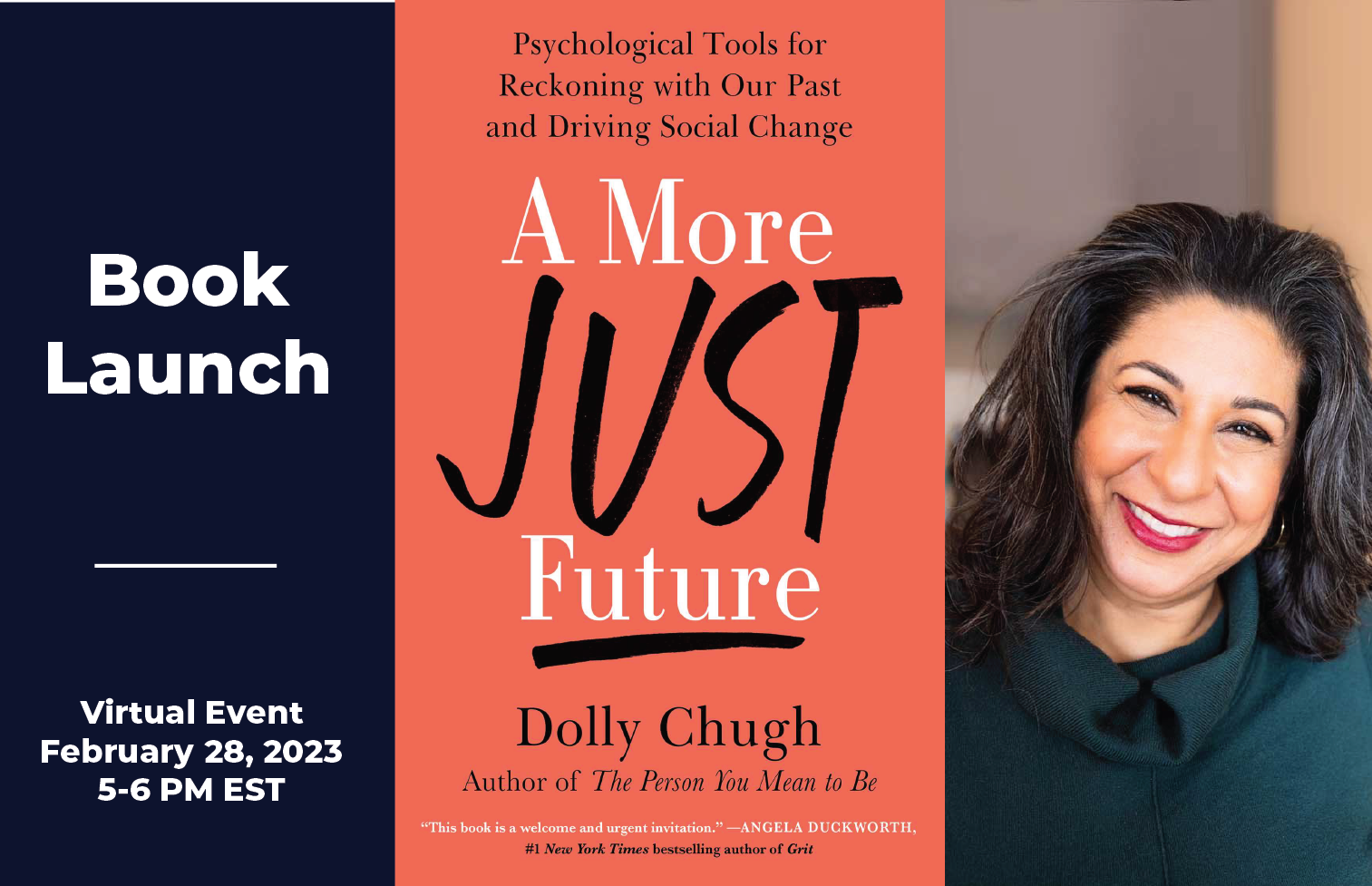Topic: A More Just Future: Psychological Tools for Reckoning with Our Past and Driving Social Change(Simon & Schuster, 2022)
GATE Faculty Research Fellow Sonia Kang hosted a discussion with Dolly Chugh, award-winning professor of social psychology and author of A More Just Future: Psychological Tools for Reckoning with Our Past and Driving Social Change (Simon & Schuster, 2022). Together they had an insightful discussion about the psychological tools we need to grapple with our past histories, and how we can dismantle unjust systems and work towards a more just future.
Dolly shared several tools to navigate complex histories including “detecting racial fables,” which are simplified anecdotes that flatten and erase complex stories. She shared an example of the traditional story of Rosa Parks whose portrayal as an accidental activist overlooks her lifelong activism in the NAACP. Fables create a linear portrayal of change, but real change is much more nuanced.
“This fable portrays change as linear, it portrays the protest as having a clear cause and effect, it portrays the individuals as flat and flawless heroes, and the reality is that none of that was true […] That is not how change happens. Change is more like rolling a brick than it is rolling a wheel. It goes forward and backwards.”
– Dolly Chugh
Dolly emphasized that ignoring history makes it hard to address systemic issues. Systemic problems have deep roots, and to create a just future, we must see the damage through others’ eyes, bear witness to it, and uncover its origins.




